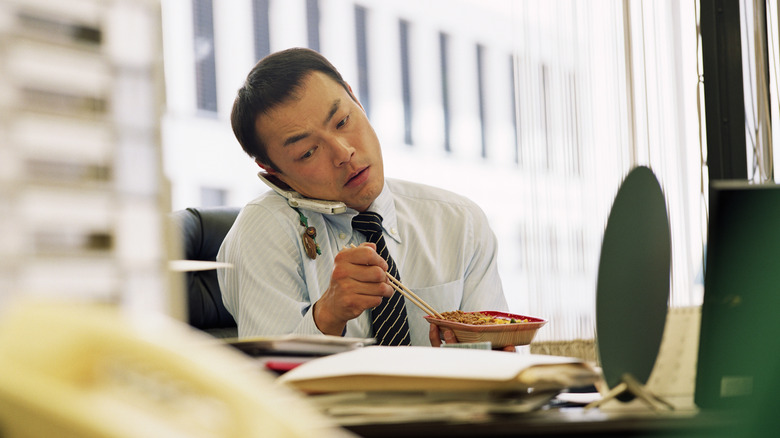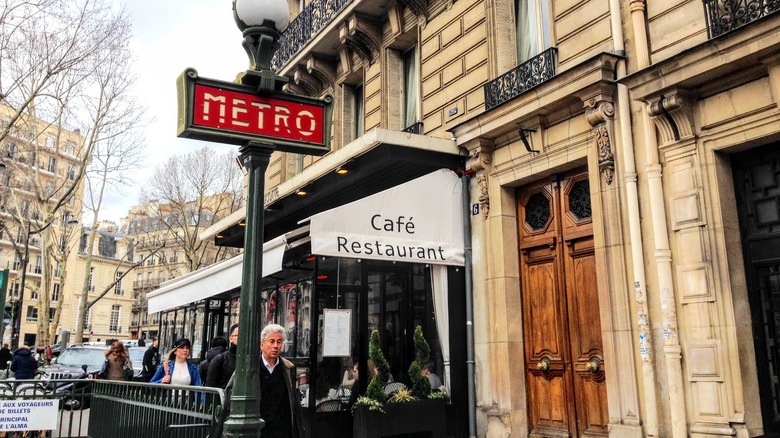A Common American Lunch Habit Is Banned In France
The value of a healthy work-life balance is an often-discussed topic around the world, given how different it can be from country to country. Some stereotype people in the United States as workaholics, clocking in day in and day out at companies that do not offer much paid time off to their employees. Even lunchtime can be crunch time, as Americans tend to take fairly short lunch breaks and eat at their desks. Along with taking more vacation time, workers in Europe tend to feel more comfortable taking leisurely lunch breaks than their American counterparts. France, in particular, has taken this a step further by actually making it illegal to eat at your place of work, which is among many bizarre laws in the country.
Relaxing lunch breaks fit perfectly for a country whose café culture is so well known and envied around the world. Lunch in France usually comes with images of sidewalk café complete with stylish patrons sitting under the awnings. However, it wasn't the French's love for their idyllic café or even croissants and escargot that made them ban eating at work. This French food rule was originally about workplace safety.
French workers have taken lunch breaks since 1894
At the turn of the 20th century, rapid industrialization was creating new norms in European cities. Factory workers had to commute and began taking sack lunches to work, but eating inside a factory when health precautions surrounding industrial workplaces were still developing doesn't sound too pleasant. Even then, people wanted to somehow prevent illnesses from running rampant due to unsanitary factories. Scientists' understanding of germs was expanding, but the miasma theory — which attributed the spread of disease to bad air — was still prominent in the late 1800s. The French government's solution was to require everyone to leave for lunch so that the factories could open doors and windows to air out the unhealthy air.
Since the workplace eating ban became official in 1894, food and culture historian Martin Bruegel explains that people have discovered other benefits to taking a lunch break away from their places of work. "People are just simply happier when they take some downtime during the workday," Bruegel told NPR. "It's good for their well-being." Overall, he believes that co-workers sharing different perspectives over a meal makes for a well-rounded society. Maybe other countries should follow suit. Bon Appetit!

